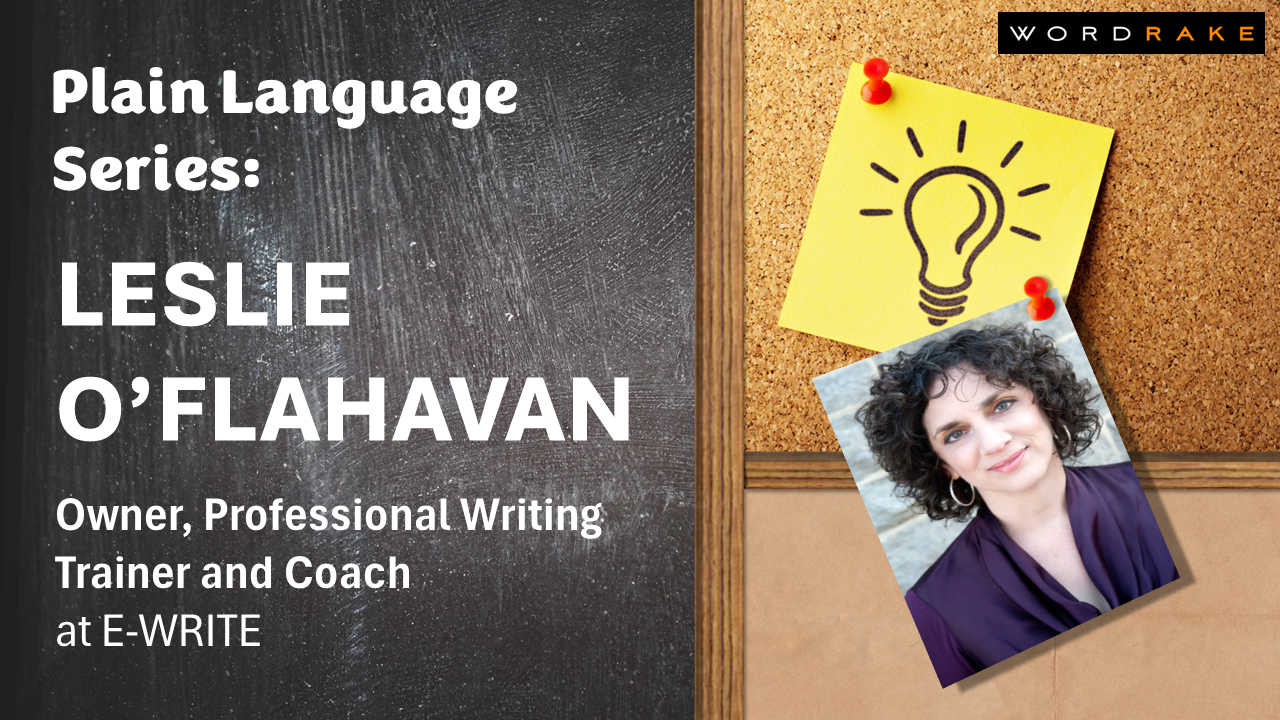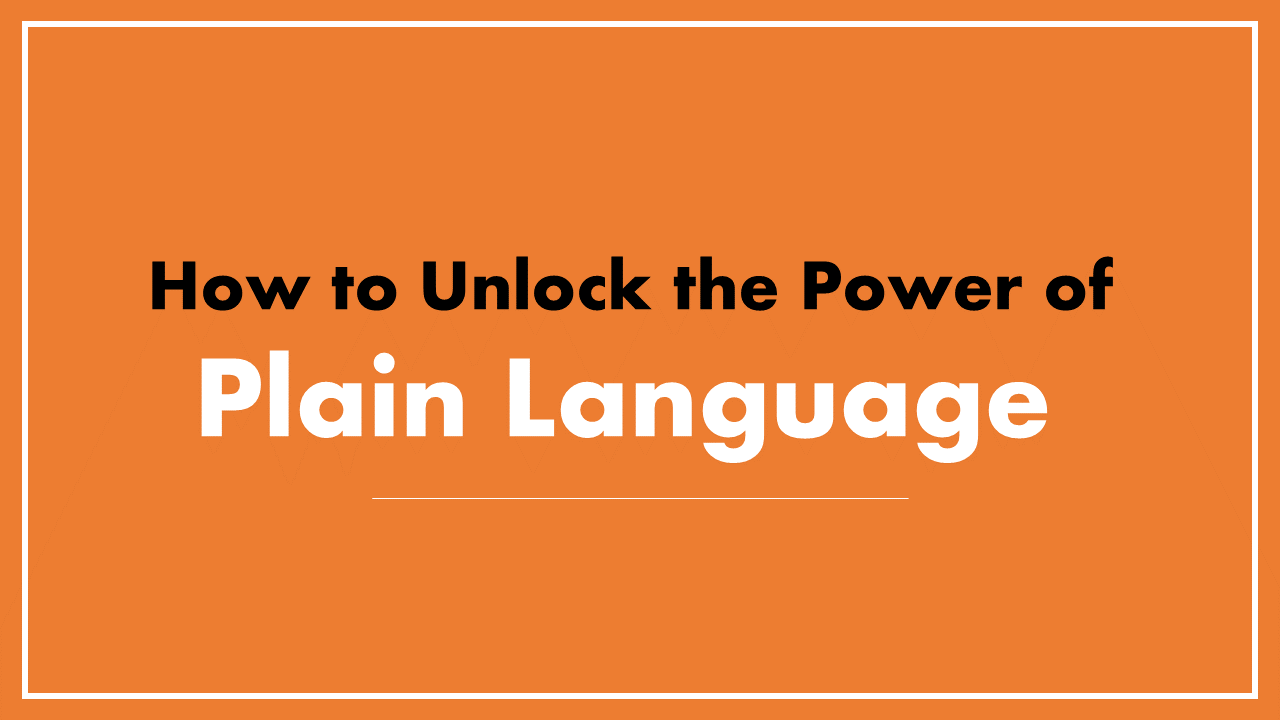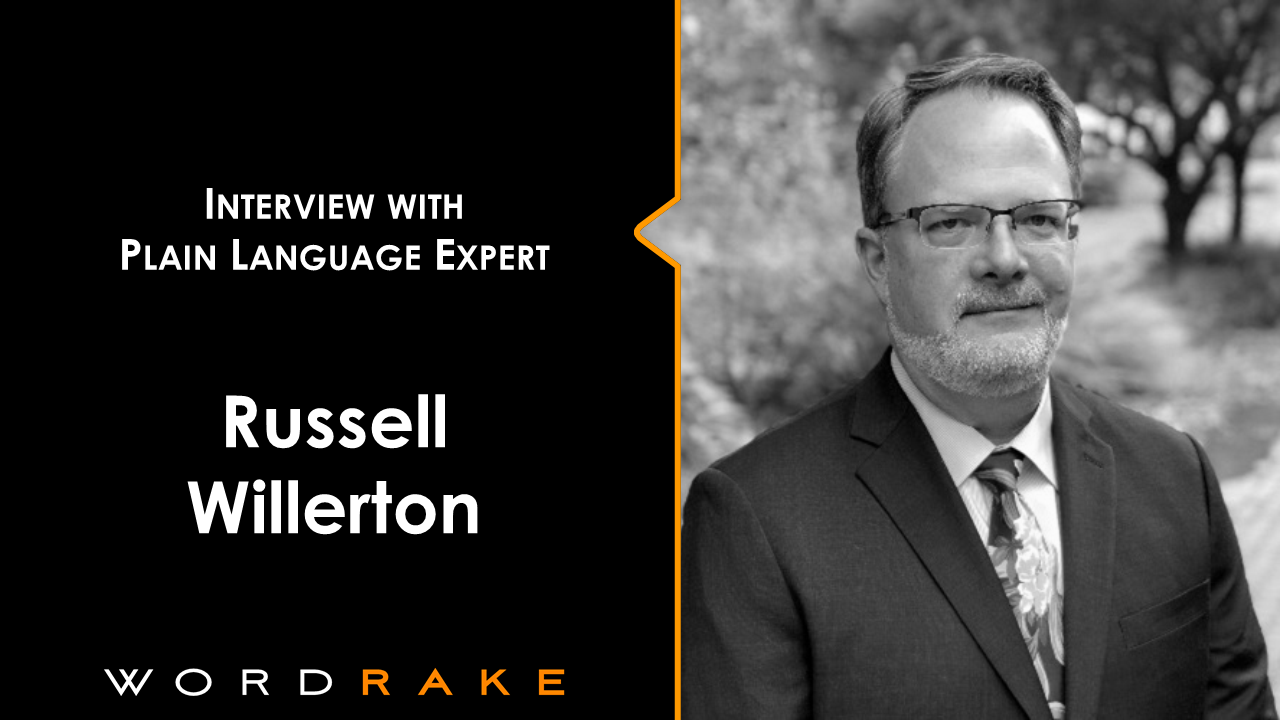If you've never specifically written in plain language before, it can be difficult to know where to start. Most of us were taught that big words and complex sentences would make us sound smart and trustworthy. Once you realize that your work gains more credence when you write for your audience's needs, it can be hard to break the highfalutin habit. Fortunately, professional writing coach Leslie O'Flahavan has some concrete advice for how to communicate clearly.
What is your role and how is it connected to plain language?
For 27 years, I’ve been the owner of E-WRITE, a writing training consultancy. My mission is to help people write well at work, and plain language provides the framework. I help people understand their relationship with their readers and develop writing skills, so they can meet readers’ needs.
What is the difference between plain language and plain English?
The former term is inclusive, and the latter is not. The latter implies that you must write in English to be plain, and that’s ridiculous.
Many professions (i.e., law, medicine, finance) are gatekeepers of important information for the public. What obligations do professionals have to communicate in plain language?
Professionals are obliged to write in plain language because writers are obliged to meet readers’ needs and answer their questions. The obligation to write in plain language doesn’t change when the writer is a professional or a person who’s earned a lofty academic degree or boatloads of money. Writers owe readers content that’s worthwhile to read and easy to understand.
What’s the most important—yet simple—change professionals can make to consumer-facing documents to improve understanding?
Identify (write down) your readers’ questions on the topic before you begin writing about it. Incorporate readers’ questions into your finished product, so they can see themselves and their needs in your content.
Beyond writing with simpler words and shorter sentences, what else can professionals do to communicate better for the public’s benefit?
Professionals should emphasize what readers can or should do after reading the content. Writers should make the action clear.
What’s one piece of advice that you would offer to help a professional start using plain language?
Trust the way you speak. We all get much more practice with spoken language and much more feedback on whether we’ve connected with listeners than with readers. When we speak to someone, we can tell instantly whether they understand or care about what we’re saying. Exploit all that speaking practice and feedback to improve your writing. To write in plain language on an important topic, adopt more of the diction and style you use when you speak about that topic.
What’s the most convincing statistic that you can share to convince professionals to start using plain language?
Research shows that 93% of professionals who write in plain language report a 92% drop in follow-up questions from readers and a 94% increase in their satisfaction with their jobs and their lives. (DISCLAIMER: These research findings have been invented. The previous sentence was written in passive voice intentionally, as was this one. 😀)
About Leslie O’Flahavan
Leslie O’Flahavan is a get-to-the point writer and an experienced, versatile writing instructor. E-WRITE owner since 1996, Leslie leads customized writing courses for Fortune 500 companies, government agencies, and non-profit organizations. Leslie helps the most stubborn, inexperienced, or word-phobic employees at your organization improve their writing skills, so they can do their jobs better. As a result of her work, Leslie’s clients improve their customer satisfaction ratings, reduce training cycles, improve productivity, and limit legal risk. Leslie is a LinkedIn Learning author of six courses on topics including writing for social media; live chat and text; plain language; and technical writing.
About WordRake and International Plain Language Day
Plain Language experts Cheryl Stephens and Kate Harrison Whiteside created International Plain Language Day on October 13, 2011 to celebrate the first anniversary of the signing of the Plain Language Act in the United States. Since then, plain language enthusiasts take time each year to celebrate the gains the movement has made.
In October 2022, WordRake celebrated Plain Language Day by releasing their new Simplicity editing mode to help comply with plain language laws. As firm believers in the importance of clear communication, WordRake celebrates October 13th by highlighting experts and leaders in the plain language field. To see how WordRake can help you simplify your writing, take a 7-day free trial today!







